#Naval Engineering
Text







Donald McKay – Scientist of the Day
Donald McKay, a Canadian/American shipbuilder, died Sep. 20, 1880, at age 70.
read more...
#Donald McKay#shipbuilding#clipper ships#naval engineering#histsci#histSTM#19th century#history of science#Ashworth#Scientist of the Day
26 notes
·
View notes
Note
I recall your post on the Japanese battleship Yamato being a colossal waste and poor weapon. My question is this, why then is there such a huge hype and culture around the ship?
It's worth noting that at the time of construction, battleships were considered the prevailing naval doctrine of the day, so the construction of a battleship as opposed to an aircraft carrier was considered a proper use of shipbuilding resources. Anyway, the point of the Yamato was to engage multiple battleships, it was intended to form a cornerstone in naval line battle against United States Navy capital ships and anchor the IJN fighting line. Japan believed that they could not compete with the United States in number of ship hulls produced, so it sought to make up for them by making individual ships larger and stronger. On paper, it's not a bad idea, but as I mentioned before, there were a lot of practical difficulties in operation that led to it being a waste.
As far as culturally speaking, Japanese militarists saw the Yamato and Musashi as visible expressions of Japanese naval engineering capability and a declaration of intent to surpass the western naval powers of the time: the United Kingdom and the United States (the latter being more important as the USA was seen as the Pacific naval power to rival Japan). Afterward, Yamato was mythologized, memorialized, and romanticized, as part of Japan's reckoning (or lack thereof) with their Second World War past. The name Yamato has been used as a symbol of national pride, anti-Western ideology, the victory of honor over cowardly self-preservation as its doomed sailors do their duty to the last in defense of their homeland, or as a means of aggressive foreign policy depending on the person - it's no surprise that it finds a lot of purchase among hardline Japanese militarist and Second World War apologists and warcrime denialists/minimizers.
Thanks for the question, Anon.
SomethingLikeALawyer, Hand of the King
#history#battleship yamato#world war ii#world war 2#ww2#wwii#engineering#naval warfare#naval engineering
28 notes
·
View notes
Text
youtube
#youtube#militarytraining#2024#Disaster Recovery#Salvage Crews#Maritime Industry#Key Bridge#Emergency Response#Naval Engineering#Race#Rescue#Vessel Recovery#Salvage Operation#Shipwreck#Salvage#Sinking Ship#Maritime#Maritime Salvage#Operations#Crews#Stranded Ship#Refloat#Francis Scott Key Bridge: Refloating a Ship Gone Wrong - Salvage Crews Risk It All
0 notes
Text

Emotionally I am here
1 note
·
View note
Text
Traintober 2023: Day 25 - Distress Signal
What's Out in Tidmouth Bay:
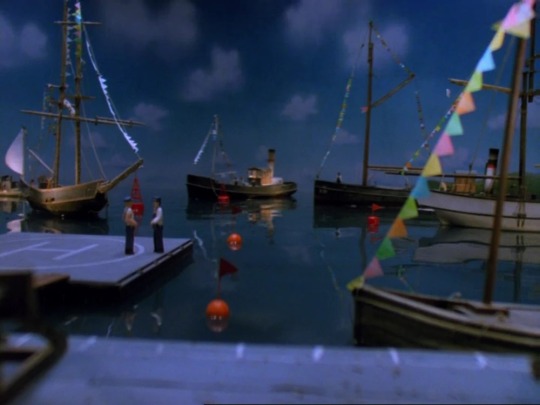
“And every year, on the date of the sinking, the ship rides the seas again, searching for the crew that abandoned her to her watery grave…” Salty finished, grinning at the assembled engines.
“Rubbish!” snorted Douglas. “Thir's na sic thing as ghost ships rising up oot o' th' ocean. Whit a doolally idea. Whitevur neist? A submarine letting oot distress signals, even though thir's na yin thare?” Both he and his twin Donald sniggered. Edward scowled.
“You shouldn’t joke about lost submarines,” he said grimly. “After all, there’s a tale of a submarine that was lost off Tidmouth bay that will make you funnel quiver.”
“Ooo! Tell it! Please!” exclaimed the other engines. Edward shot a dark look at them.
“This is not a pleasant story, and it’s certainly not one to make light of…” With one last sigh, the old engine began his story.
“Back during the First World War, both Britain and Germany began to deploy early submarines to disrupt shipping and try to starve their opponent out of the war. But back then, the submarines were still new technology – they rattled, and sprang leaks, and they were loud most of the time too. But when they glided underwater, not even the keenest of eyes could spot them.
“In 1916, several British submarines began docking at Tidmouth. These submarines were manned by local Sudrians who’d signed up for the navy, and they were very proud of their machines.
‘Best in the Navy!’ they would boast.
‘Never to be beaten!’ we would often reply, caught up in a great patriotic spirit for our country and our boys doing their part to defend it.
“One of the duties of these submarine crews was to tow large underwater mines into choke points in the harbour waterways. These giant, spiked balls of explosives were placed randomly, so that enemy ships would be unable to get too close to the harbour to attack. The submarines were good at this job, and the island’s people always felt safer knowing they were protecting us.
“It all changed one foggy night. A German U-Boat had been spotted off the coast of Liverpool and was sailing north towards us at a tremendous rate. At the time, Tidmouth was a major manufacturer of shells and explosives for the front line, and even one hit to the factory would do irreversible damage. The submarines in Tidmouth bay were sent out to find the German U-Boat, despite the thick fog that made navigation almost impossible – and they found it. Unfortunately, they also found the minefields.
“The radios were filled with crackly cries for help from Sudrian sailors, all lost in the fog and trying to avoid the mines they’d set while also hunting for a German U-Boat. We all waited with bated breath on the shoreline, all listening to the radio and praying for the boys…”
Edward paused, then tears filled his old eyes.
“And then, there was a flash of light – it was so bright, it pierced through the fog and lit up the entire bay – and screams. They came through the radio for only a couple seconds, but they were the longest seconds of my life. They were horrible – wretched, broken, filled with agony and suffering – and then they were gone. One of the Sudrian submarines had found the German U-Boat and fired on it… but they had missed… and hit an underwater mine. Both ships were destroyed, sinking down to their final resting places on the sea floor.”
The engines were horrified. Even Donald and Douglas were silent, eyes wide. Every engine who had lived through the First World War had known someone who had lost their lives – but to actually see it with their own eyes… it was horrific.
“But that wasn’t the end,” Edward continued, startling everyone. “One year later, the remaining submarines were sat in the harbour when their radios crackled with an unknown message. But it wasn’t just the submarines’ radios – no, it was every radio in Tidmouth. Every single one picked up this unknown, crackling message. It was a distress signal! – a shouted one, in two different languages. One was foreign – German; garbled, broken by the static of the radios. The other however… it was the lost sailors from the sunken submarine. They were shouting at each other and at us – and then there was a massive explosion that ripped through the radio-waves. There was a flash of light – and then those screams. They tortured us, far longer than the screams we’d heard on that fateful night. They were in German too now, as if both ships were wailing for their losses. And then… nothing.
“This happened again the next year, and then the year after that – and after that, the people of Tidmouth learnt. Every year, on the date of the accident, every radio in Tidmouth is switched off. It’s a moment of silence, for the men who lost their lives.”
No one knew what to say, and so they all went quietly to sleep.
The next evening, Edward was away on his branchline, and a new driver decided to leave the radio on for the engines in the sheds. This was not uncommon – the engines enjoyed the background noise; it was relaxing after a long days’ work.
It was only Donald and Douglas – Bear had the midnight goods, Gordon had the express, Salty was delivering some trucks to Elsbridge, Duck was collecting a late load of ballast, James and Henry were sleeping at the other end of the line, and Oliver was pulling the last passenger train of the evening.
“Edward's story - ye dinnae hawp it, dae ye?” asked Donald.
“Na! nae at a' - tis a guid story fur a friten, bit thir's na sic thing as ghosts,” snorted Douglas. “Especially nae ghosts sending oot distress signals.”
“Aye, whit nonsense…”
The song on the radio ended – but another didn’t start. Instead, the radio crackled – as if suddenly overwhelmed by a wave of static. Voices could be vaguely heard from the radio, quiet – but growing louder. They were in English… and in German. They were screaming, pleading, arguing, begging for help. It was a distress signal. The voices grew louder, more garbled – and then, there was a sonic BOOM! that erupted from the radio, almost knocking the Caledonian twins off their rails.
It was followed by a horrific wailing and screaming. It ripped through Donald and Douglas, their boilers going cold at the sound. It was the sound of dying men. It stretched on for what felt like an eternity, eventually tapering off into garbled groaning, and then nothing.
An unseen figure in a top hat clicked off the radio, and vanished out the back door, unheard by the twins. They were barely holding in their tears, eyes wide and wheels quivering.
Oliver puffed in, looking very confused.
“Are you two alright?” he asked. “You look like you’ve seen a ghost—”
“Dinnae... say that…” Donald croaked.
Oliver stayed respectfully silent.
Back to Master Post
#fanfiction writer#railway series#weirdowithaquill#thomas the tank engine#traintober 2023#traintober#ttte edward#ttte douglas#ttte donald#wwi fiction#naval#submarine#tw ghosts#railways#prompt: distress signal
27 notes
·
View notes
Text
Atla worldbuilding thought: In Atla steam engines and ships with metal hull exist. Guns, on the other hand, do not exist.
There was a short time window in our history in which guns were ineffective against Ironclads. In one battle they tried the solution of ramming and it worked surprisingly well. But it didn't become common practice because gun technology caught up.
But in the world of Atla, without guns, naval battles would be ramming focussed.
#only in case of technological parity of cause#the water tribe ships cannot hope to win a contest with the fire nation by ramming#so they use hakoda's ambush tactics with seaweed mines#we don't see an earth kingdom fleet it is only implied that they are inferior#do we ever see an earth kingdom steam engine? or would they need earthbending powered cranks/pistons?#avatar the last airbender#naval warfare#worldbuilding#fire nation navy
10 notes
·
View notes
Text
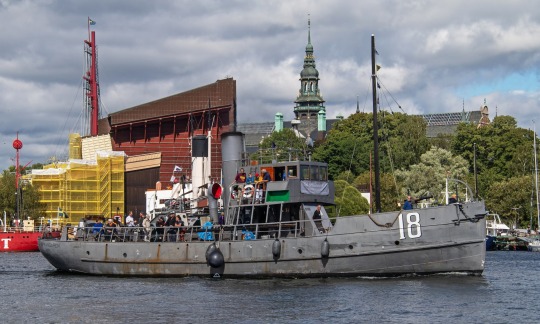
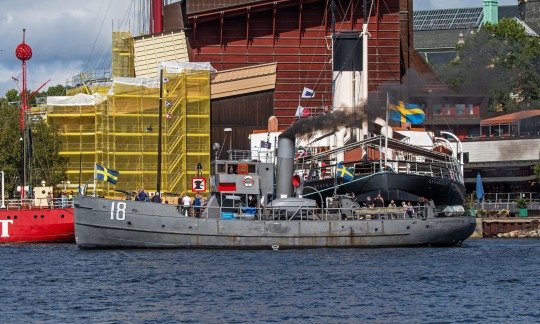
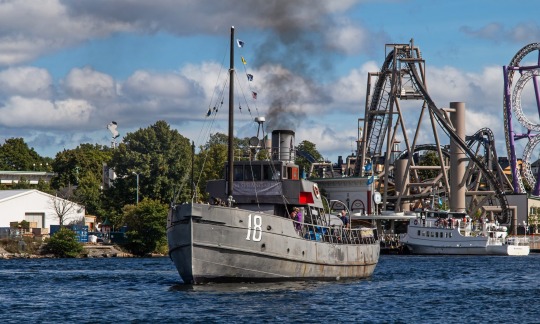
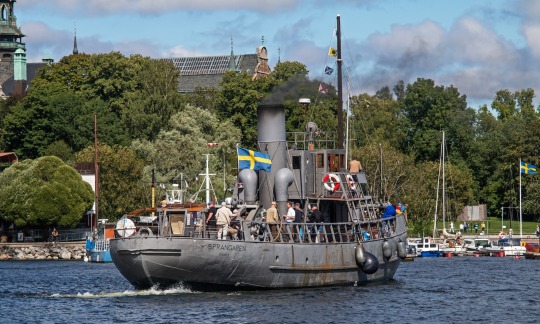
The HMS Sprängaren (transl. "The Blaster") came to the Swedish navy in 1918 as a mine-sweeper and was in the 1930's assigned as a towing ship, though originally she was classified as a "vedette ship", which makes for an interesting series of classifications. She continued in her duties into the 1990's, but has been restored by a Veteran's association.
She got her name to fame being the ship that towed the salvaged Vasa ship in the 1960's, and she is today the only WW1-era naval vessel in the world running on her own power - which is a coal stoked steam engine.
Images were taken by a Backa Erik Eriksson, August 2023.
21 notes
·
View notes
Text
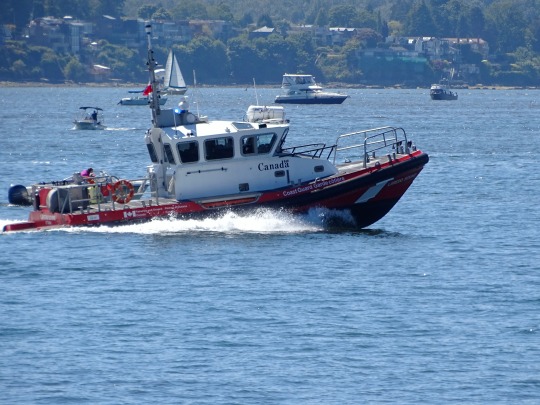
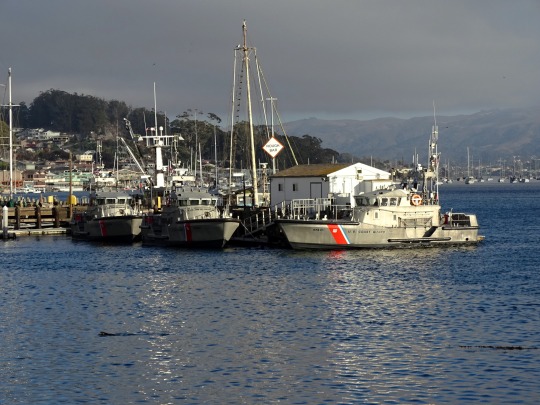
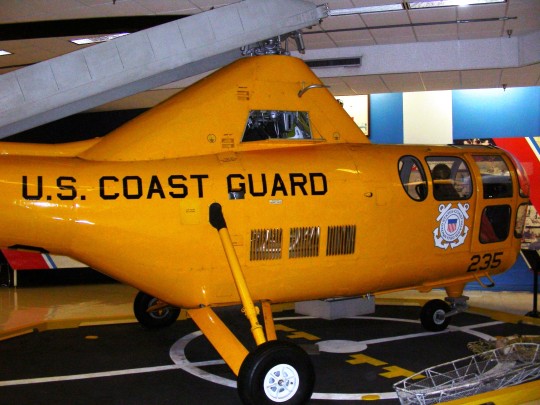
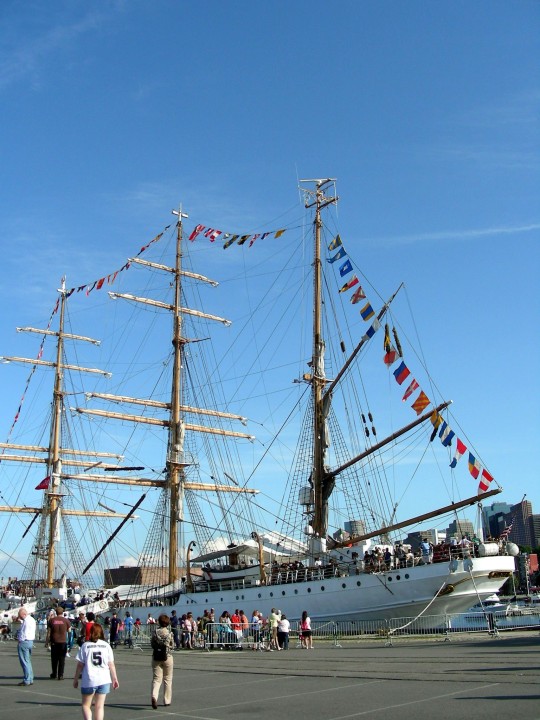
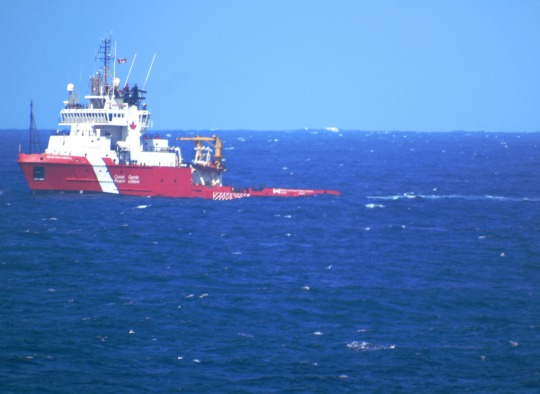
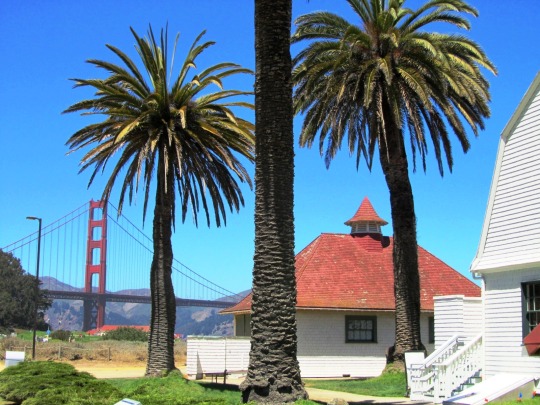
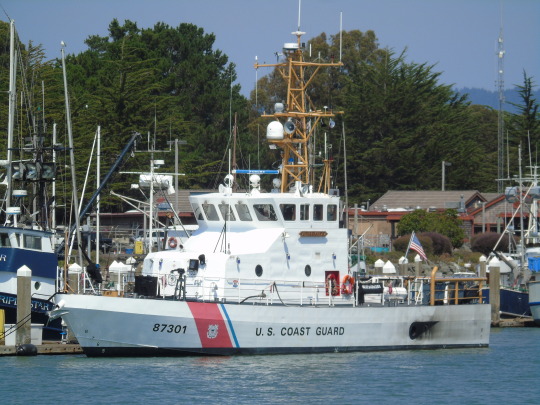
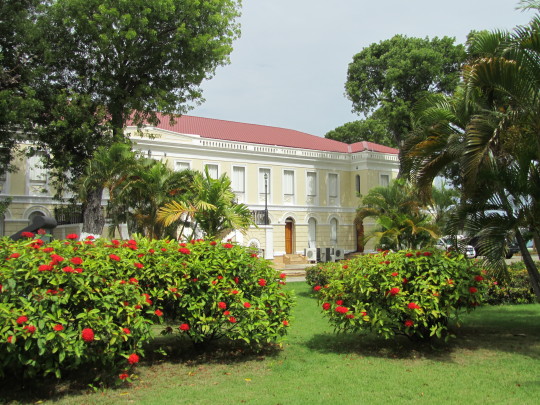
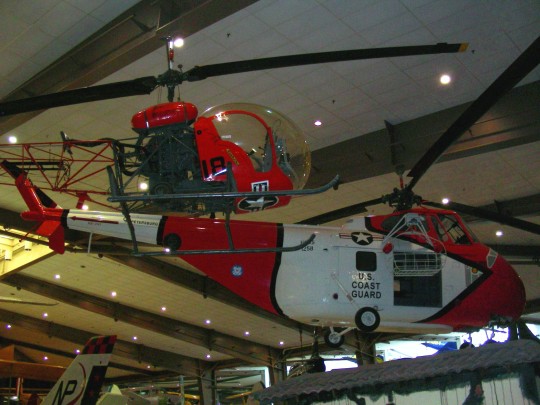
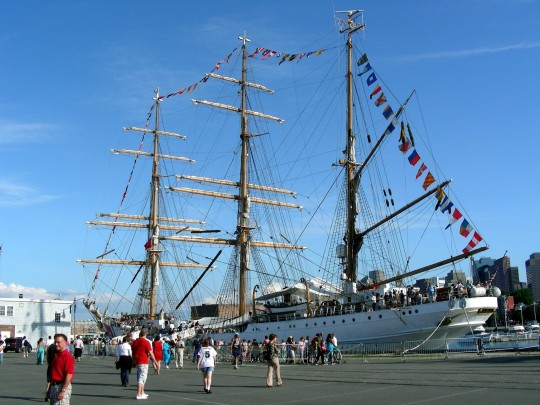
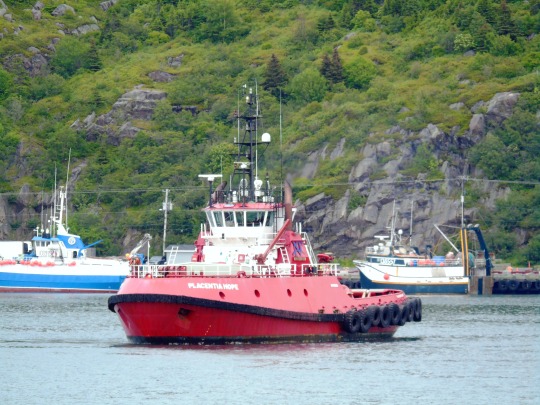
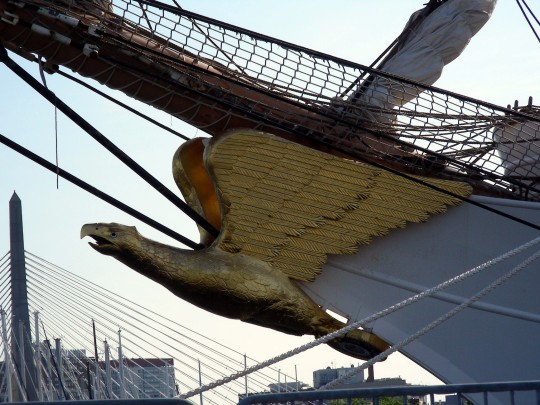
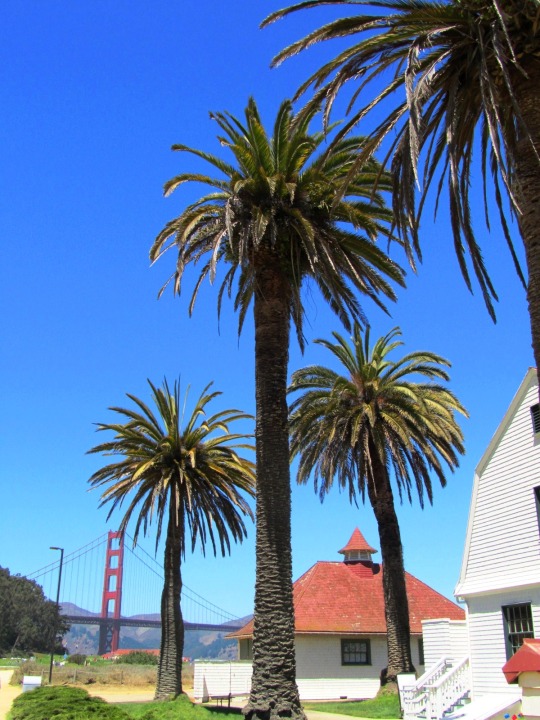
U.S. Coast Guard Day
U.S. Coast Guard Day honors the United States Coast Guard, the military branch that protects the waters and shorelines of the United States. It is celebrated on the anniversary of the founding of the Revenue Marine, the forerunner of the Coast Guard. On August 4, 1790, the United States Congress created the Revenue Marine and authorized the construction of 10 revenue cutters to be used to enforce U.S. tariff laws—to stop illegal smuggling and collect revenue on incoming goods. The Revenue Marine was housed in the Department of Treasury and thus directed by Secretary of Treasury Alexander Hamilton.
The Revenue Marine's name was later changed to the Revenue Cutter Service. Then, in 1915, the Revenue Cutter Service was combined with the United States Life-Saving Service to form the United States Coast Guard. This created a single maritime service, bringing together one devoted to enforcing maritime laws and one dedicated to saving lives. The United States Lighthouse Service became part of the Coast Guard in 1939, and the Bureau of Marine Inspection and Navigation became part of it in 1946. In 1967, the Coast Guard was transferred from the Department of Treasury to the newly-created Department of Transportation. Similarly, it was transferred to the Department of Homeland Security in 2003.
U.S. Coast Guard Day has been marked in some form since at least 1928. Presidents have proclaimed August 4th as "Coast Guard Day." Harry Truman did so in 1948, and Ronald Reagan did so in 1984 after being requested to do so by Congress. In large part, U.S. Coast Guard Day is an internal celebration by Coast Guard personnel and their families, but others join in honoring Coast Guard members as well. Coast Guard units often organize picnics and informal sports competitions, where they celebrate with family and friends. The American flag is typically flown on the day, particularly by those who have family members in the Coast Guard. Grand Haven, Michigan, known as Coast Guard City, USA, holds the annual Coast Guard Festival each year around August 4th.
The Coast Guard defines itself as "the principal Federal agency responsible for maritime safety, security, and environmental stewardship in U.S. ports and inland waterways, along more than 95,000 miles of U.S. coastline, throughout the 4.5 million square miles of U.S. Exclusive Economic Zone (EEZ), and on the high seas." It has active duty, reserve, and civilian employees, and there also is a Coast Guard Auxiliary. It is divided into two area commands, the Pacific Area and the Atlantic Area, and these are divided into nine district commands. Many Coast Guard stations are located in the districts. The Coast Guard fleet consists of cutters, boats, and fixed and rotary-wing aircraft. Today this branch of the military and its members are honored with U.S. Coast Guard Day!
How to Observe U.S. Coast Guard Day
Some ways you could observe the day include:
Make plans to attend New Haven's Coast Guard Festival, Petaluma's Coast Guard Day, or another public event in honor of the Coast Guard's founding. If you are a member of the Coast Guard, or if you have a relative in the Coast Guard, see if there are any private events being held in honor of the day that you can attend.
Stop at a Coast Guard station.
Fly the American flag.
Learn more about the responsibilities and functions of the Coast Guard. You could do so by reading a book such as The Coast Guard or The United States Coast Guard and National Defense: A History from World War I to the Present, or by exploring the official United States Coast Guard website.
Watch a film that features the Coast Guard.
Join the Coast Guard.
Source
#CCGS Laredo Sound#US Coast Guard 87301#U.S. Coast Guard Birthday#U.S. Coast Guard Day#Eureka#USCoastGuardDay#CCGS Sir Wilfrid Grenfell#Canada#Canadian Coast Guard#CCGS Placentia Hope#National Naval Aviation Museum#St. John's#Pensacola#St. Thomas#Charlotte Amalie#architecture#engineering#original photography#travel#vacation#tourist attraction#U.S. Coast Guard Barque Eagle#Boston#San Francisco#Golden Gate Bridge#4 August#4 August 1790#anniversary#USA#cityscape
3 notes
·
View notes
Text
Did I just acquire yet another maintenance manual for a plane engine so old no flying examples of it still exist and all airplanes olit was used on don't even exist in museums? Yah, yah I did :]
It's a 1929 Wright T-3 Tornado! A liquid cooled V-12! I think it's super neat!! These are just some photos from the listing cause I'm in agony waiting for it to arrive in the mail. :'3




I'm glad I don't have to assemble "cylinder blocks" like these mechanics had too, that looks like heavy yet delicate work! (Tho tbh I would instantly jump on a chance to get my hands on that). These were used mainly on some early military biplanes like the Curtis CS, Martin T3M, and Wright F2W. I can't find any info on the number of them produced, but it doesn't seem like it was very many.

25 notes
·
View notes
Note
i have a law exam next week, i get in a car and drive to aaron hotchners house because he is real and loves me, i arrive at the location. knock knock aaron let me in, i enter his house and i say sir. sir you posses a gun, please use it on me. he says no! you are my favourite person why would i do such a thing. and i say sir. i have a law exam next week.
he remembers his days of law school.
he puts me out of my misery like a lame horse.
he is not sad because he knows it's for the best.
my favorite thing is thinking about hotch meeting jack's friends and one of them is like 'oh i kind of want to go into law school' and hotch going nO DON'T DO THAT.
#mei's mail#someone did that for me three years ago when i thought I might want to be a naval engineer#and i am SO LUCKY that she did
25 notes
·
View notes
Note
Since Jimmy Carter's background was as a peanut farmer would you say he had the most humble or least impressive background of all presidents?
Jimmy Carter graduated from the U.S. Naval Academy and was a nuclear engineer who was selected by Admiral Hyman Rickover to eventually serve on some of the first nuclear submarines in the United States Navy. Carter's father died before the future President could begin serving on the nuclear submarine fleet, so Carter felt obligated to return to Georgia to take over the family's peanut farm. Carter's decision to return home to Plains in order to run the family business was made very, very reluctantly, and he has said that it caused the most significant tension he and his wife Rosalynn ever faced in their marriage. Had Carter remained in the Navy, he very likely would have become a high-ranking naval officer and probably would have ended up commanding one of the nuclear submarines. If Carter had only been a peanut farmer, he certainly would have had one of the most humble backgrounds of the Presidents, but graduating from Annapolis and training in nuclear engineering gave him a pretty remarkable resume prior to running for office.
#History#Presidents#Jimmy Carter#President Carter#U.S. Navy#U.S. Naval Academy#Hyman Rickover#Nuclear submarines#Nuclear Engineering#Peanut farmer
30 notes
·
View notes
Text
J: Going to kill the host (/joke) because scrolling through @/smash-or-pass-objects at the previous polls she voted in, I keep having the opposite responses to her smashes/passes
#what do you MEAN you would smash that goopy ass sandwich and the plain ass wooden table#what do you FUCKING MEAN you passed that car and the record playing machine#'oh the table oh so simple and homely and charming' you are talking about plain white bread. girl...#j grumbles#objectum#since that's. the topic of the post ig but im not like. trying to clutter that side of tumblr with my ramblings uhh sorry#she wouldn't fuck that old naval boat. it's a kickass boat. i need to stop talking but. bitch the ENGINE ROOM
3 notes
·
View notes
Note
How about a Quirk Marriage with Engine and Naval Laser, please?
New Quirk Name: Light Skate
This Transformation type Quirk allows the user to change their feet and calves, granting them a series of lenses. The user may fire out small beams of blue energy from these lenses. The user can then apply this to push themselves forward, effectively skating around on the energy. This moves the user at immense speeds, moving like a bright blue blur. The user can produce more energy from these beams, letting them push themselves upwards or increase their speed even further. This gives the user a good mix of offense and mobility, with their beams letting them overwhelm their foes with immense speed and powerful kicks. If nothing else, the light from the lasers can be used to blind people. Though the application of the energy is rather straight forward, only pushing them forward and making it difficult for the user to stop. Using the Quirk too much can be painful for the user's legs, and pushing the energy will make this even worse.
15 notes
·
View notes
Text


NAS New Orleans JRB fire department
(Naval Air Station Joint Reserve Base New Orleans)
#larry shapiro#larryshapiroblog.com#shapirophotography.net#larryshapiro#larryshapiro.tumblr.com#fire truck#firetruck#fire engine#IHC#Freightliner#Pierce#E-ONE#EONEStrength#Tele-Boom#Naval Air Station Joint Reserve Base New Orleans#NAS New Orleans JRB#US Navy
3 notes
·
View notes
Text
I'm overdue for a 'What Has LFW Covered So Far?' update. Hopefully I can get round to it tonight.
#letters from watson#i try to do it between stories#but i was busy/behind on naval treaty through engineer's thumb#i'm caught up now though
7 notes
·
View notes
Photo






The American Privateer...Continued
I’m delighted to discover this recent audience to the subject matter featured...I raise my glass! However, I know some are curious about how I get the fine details to this work -and the truth is simple. Just search, because there’s a ton of information out there. However, that information must be exacting to the period. Everyone one of us have a unique way for how we do things. I usually get my answers by asking myself why certain things aren’t featured when I know they existed from research.
After I pour over documents and discover visual references, it’s like a child’s playground of ‘goodies’! But we also know that too much of a good thing can be toxic over time; so we learn to calm our excitement and use what we find in moderation, re: a little here, a little there. This is how I get the goodness of my assignments to be what others seem or deem impossible. The truth is we ALL have gifts to share, which is why I’m taking the viewer on this small trip into my life as an artist-craftsman.
This privateer model is as accurate as one can get it to the real thing. This is how this particular ship was designed for battle. And, this is how it served our American sailors/officers when we revolted to be a separate Nation from British rule. The final views of the build will support these words. In the meantime, enjoy the images that I’m bringing to you. Thanks for viewing!
#age of sail#privateer#museum#curator#privateers#naval history#executives#the collector#collectibles#mariner#news#nautical#maritime#artists on tumblr#fineart#finest#craftsman#woodworking#engineering#innovation#researcher#scalemodel#navy#model ship#scratchbuilt#fine detail
10 notes
·
View notes